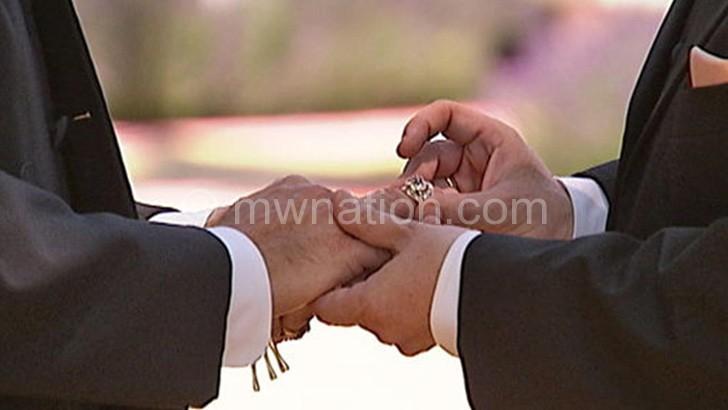When politics frustrates LGBTI rights
The human rights fate of the Lesbians, Gays, Bisexual, Transgender and Intersex (LGBTI) community is in the hands of government.
The Tonse Alliance promised to uphold the rights of everyone. But with regard to the LGBTI community, that promise is never there.
But while government is able to respond to other issues on human rights, the LGBTI one is tricky. Attorney General Thabo Chakaka Nyirenda could not come clear even on moratorium.

“I heard that the moratorium was there, but I need to find out about it and will revert to you,” he said.
Minister of Justice could not respond to the policy of Tonse Alliance government on the LGBTI community, a sign that the matter is politically sensitive.
The only time politicians, though very afraid, eased the LGBTI suffering was in 2012 when then president Joyce Banda issued a moratorium on laws that criminalises homosecuality.
The successor to Banda, Peter Mutharika, maintained the moratorium which is supposed to be a temporal relief anyway.
But the main issue is whether the moratorium has been working or not. Human rights lawyer Chikondi Chijozi says no. she says a number of people are being arrested and taken to court for being suspected of homosexuality.
God’s image
Father Martin Kalimbe from the Anglican Church says much as there are laws that criminalises homosexuality and that some clergy condemn the practice, one thing they forget is that every person was made in the image of God.
He says: “If we can accept that we are all created in the image of God, there will be no discrimination or condemning anyone, be it the LGBTI community or anyone.
“Even humanity tells us to respect one another as such, we need to live as family. The fact that we do not subscribe to the LGBTI beliefs does not give us passport to hate and harm them.”
The priest also dismissed claims that gay and lesbian issues are foreign saying some of those practising it have never gone out of the country and therefore, have not come into contact with foreigners.
He also pointed out contradiction in our laws, saying while homosexuality is against the law, the same laws give rights to everyone.
Centre for Human Rights and Rehabilitation executive director Michael Kaiyatsa says what is happening with the LGBTI community is purely politics.
“It is all about votes. The party in power believes that if they endorse the rights of the LGBTI community, people will turn against it, hence, lose votes in the next elections,” he said.
Kaiyatsa however said government has the responsibility to protect all Malawians regardless of their sexual orientation saying it is their human rights.
The law, particularly the penal code, criminalises homosexuality of same sex marriages. Section 153 prohibits ‘carnal knowledge’ against the order of nature with a penalty of 14 years imprisonment.
Section 156 criminalises acts of ‘gross indecency’ between men while Section 137A criminalises ‘gross indecency’ between women. Both attract five years imprisonment.
However, Section 180(g) of the Penal Code criminalises men who wear their hair beyond a certain length, with a penalty of three months’ imprisonment and for repeat offenders, six months imprisonment and a fine. This provision is seen as criminalising gender expression.
But Kaiyatsa says such laws should be repealed because they are not relevant in a democratic society.
He says: “We are in a democracy where people have the right to do what they want. Laws who were established long time ago should not hinge on them.
“Again, laws should not be selective. They should be able to protect everyone, including the LGBTI community.”
Human rights activist Habiba Osman says there is need to carry out a political analysis to establish the reasons laws about LGBTI are not repealed.
She says politics play a part because many people in the country are against homosexuality as such; politicians need to treat carefully to avoid losing votes.
“The first challenge is to deal with popular opinion. The fact that many people are against rights of LGBTQ persons means that the legislative route is not the easiest. We may consider taking the legal route through litigation using test cases,” says Osman.
The first test of homosexuality laws was in December 2009 when police arrested two men, Steven Monjeza, then 26 and Tiwonge Chimbalanga, then 33, after celebrating their engagement ahead of a wedding planned for the following year.
The court found them guilty after trial and were sentenced to 14 years imprisonment. Many donors and human rights activists condemned the sentence and called for their release.
Late judge Nyakwawa Usiwausiwa, then chief resident magistrate, said he gave the two a maximum sentence to deter ‘Malawian sons and daughters from copying the same sex marriages which are un-Malawian and not in our culture and religious beliefs’.
He described it as not only the first case in Malawi, but also the worst of its kind. However, the arrest of Monjeza and Chimbalanga was received with condemnation from donors and civil society organisations.
Even then United Nations secretary general Ban Ki-moon came to the country to discuss the matter.
Days later, then president Bingu wa Mutharika pardoned them.





